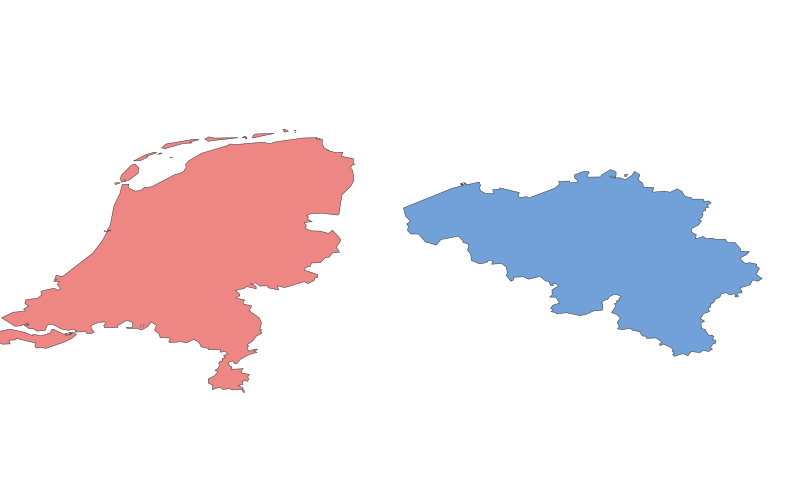Netherlands vs. Belgium: A Geographical Comparison

Comparison Table
| Category | Netherlands | Belgium |
|---|---|---|
| Location | Northwestern Europe, bordered by Germany, Belgium, and the North Sea | Western Europe, bordered by France, Germany, Luxembourg, and the Netherlands |
| Size | 41,543 km² | 30,528 km² |
| Climate | Temperate maritime, mild summers, cool winters | Temperate maritime, similar to the Netherlands but slightly more precipitation |
| Natural Resources | Natural gas, petroleum, peat, limestone | Coal, natural gas, construction materials |
| Urban Development | Highly urbanized, with cities like Amsterdam, Rotterdam, and The Hague | Densely populated, major cities include Brussels, Antwerp, and Ghent |
| Transportation | Extensive cycling infrastructure, efficient public transport, and major ports like Rotterdam | Well-developed rail and road networks, key ports like Antwerp |
Description
Netherlands
The Netherlands, often referred to as Holland, is a low-lying country known for its flat landscape, windmills, and extensive canal systems. Historically, it was a major maritime power during the Dutch Golden Age in the 17th century. The country is renowned for its liberal culture, vibrant cities, and contributions to art, with figures like Rembrandt and Van Gogh. Economically, the Netherlands is a global hub for trade, agriculture, and technology, with Rotterdam being Europe's largest port.
Belgium
Belgium is a small but culturally rich country, divided into three regions: Flanders (Dutch-speaking), Wallonia (French-speaking), and the German-speaking community. It played a significant role in European history, particularly during the Middle Ages and the Industrial Revolution. Belgium is famous for its medieval towns, Renaissance architecture, and culinary delights like chocolate and waffles. Economically, it is a center for international politics (hosting the EU and NATO) and has a diverse industrial base, including diamond trading in Antwerp.
Both countries share similarities in climate and urbanization but differ in cultural and historical influences, making them unique yet interconnected neighbors in Europe.